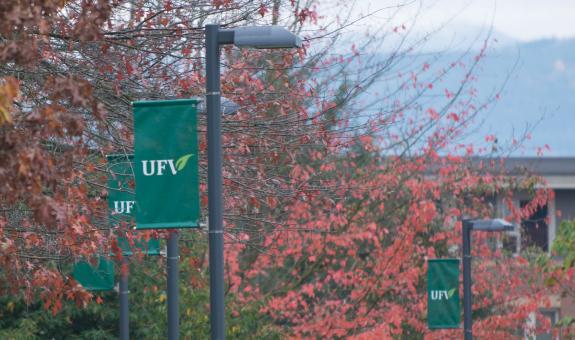After a lengthy delay, the union representing UFV’s faculty and staff met face-to-face with administration to resume contract negotiations last Thursday.
The meeting, in which the faculty-staff association (FSA) submitted a proposal, beginning a new round of negotiations, is the first following last summer’s vote to not ratify a tentative agreement. Faculty and staff have been working under the terms of their previous contract since it expired at the end of March 2014.
Labour disagreements are not the norm at UFV — FSA president Sean Parkinson is quick to point out that past negotiations typically have been ratified by an overwhelming majority. But last year’s round of negotiations concluded with an agreement many felt was full of problems — 62 per cent voted against.
“If it was just one thing you could take off the table and say, ‘Now the deal will be fine,’ then we’d be in a much easier position,” Parkinson says. “[But] there were almost as many complaints as there were articles.”
New limitations on department head choice, sabbatical approval, and the removal of faculty input on class size numbers, to name some of the complaints, contributed to an overall sense that to approve the agreement would be to give up part of each employee’s say in what happens at UFV.
Leslie Courchesne, the director of university relations at UFV, says that the negotiation process is designed to work for both sides.
“Clearly something didn’t quite work last time,” she says. “[But] UFV and the FSA intend to bargain in good faith with each other to reach an agreement that we both feel will serve the institution well and will be ratified.”
English professor John Carroll is the chief negotiator for the FSA, and summarized the priorities for this round of contract talks in a letter to faculty and staff.
“We have specifically made decisions that should send a strong message to management that we strongly resist any tampering with faculty autonomy or workload issues,” he writes. “We cannot control what management puts forward; therefore, we will have to remain vigilant and strenuously resist any efforts to erode working conditions of staff, to chip away at faculty autonomy, or to incrementally increase workload.”
One difference for this negotiation period is that the FSA is working with Lesley Burke-O’Flynn, a labour relations representative from the Federation of Post-Secondary Educators of B.C. “Having an expert at the table is likely to make the process go a lot faster,” Parkinson says.
Burke-O’Flynn worked in a similar capacity for the faculty association at Kwantlen Polytechnic University last year — negotiations there resulted in a five-year contract that included no concessions on class size or faculty autonomy, and added health benefits and professional development funds, including a 5.5 per cent salary increase over the length of the contract.
For now, Courchesne says that at this point, the beginning of negotiations, the length of the process is unpredictable.
“I’m sure everyone is very eager to see this concluded and a successful agreement in place,” she says. “But it’s very hard for me to estimate how long it may take for us to get to an agreement … one that everyone feels will be ratified by the membership.”
UFV’s contract negotiation team, led by Diane Griffiths, the associate vice-president of human resources, is currently reviewing the FSA’s proposal package. The two groups’ next meeting is scheduled for March 8.



